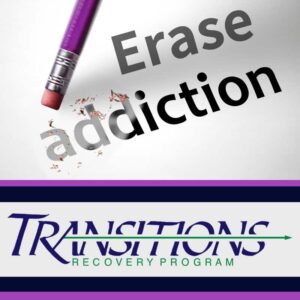Overcoming addiction isn’t about grinning and bearing through the pain. Addiction isn’t a “bad habit” you can shake with some extra willpower and a little positive thinking. It’s actually a chronic disorder that could have physical, mental and emotional root causes.
Think of addiction as you would a physical chronic condition such as diabetes. It’s rare to hear about someone trying to overcome diabetes on their own through better habits and decision-making. That’s because the best way to deal with a chronic physical condition is to seek assistance from a trained medical provider. And if you’re wondering how to overcome addiction, the same thing is true.
 The best way to face your addiction is with the right kind of support around you. Getting professional help to understand the addiction cycle and how to deal with it can make a huge difference in your ability to successfully seek sobriety and remain drug- or alcohol-free in the future.
The best way to face your addiction is with the right kind of support around you. Getting professional help to understand the addiction cycle and how to deal with it can make a huge difference in your ability to successfully seek sobriety and remain drug- or alcohol-free in the future.
The First Step: A Personal Decision
Overcoming addiction isn’t all on the professionals you reach out to, though. It involves a personal commitment to change your life. Some of the areas you might need to change to successfully seek sobriety include:
- Where and how you spend your time, especially your social or free time
- Who you spend time with
- How you react to and handle stress
- What types of substances you put into your body, including medication
- How you think, feel and talk about yourself
Those are all major changes, and it can be scary to contemplate how much your life may need to evolve to overcome addiction. It’s very normal to be reticent about making such sweeping changes, and it’s also normal for part of you to seemingly cling to a drug or substance of choice. It may not be a positive influence, but it might have been a major part of your life for some time. There’s a tendency to wonder who you are without it.
All these concerns are just some of the things that professional counselors and recovery treatment professionals can help you address and overcome. When you feel yourself backsliding in thoughts about your desire to stop using drugs or alcohol, don’t dwell on these worries. Instead, think about the benefits of quitting alcohol or drugs from your life and what you can gain from doing so.
Considering Treatment Options for Overcoming Addiction
Once you’ve decided to work toward overcoming addiction, the next step is finding the right treatment option. While best practices do exist, addiction treatment should never be a one-size-fits-all approach; what works for one person might not work for you.
Here are some things to consider when choosing a rehab or addiction treatment option.
- Does it include detox? In some cases, you may want to start with a program that includes medically assisted detox. The goal of this rehab step is to help you get through withdrawal symptoms as comfortably and pain-free as possible so you can concentrate on recovery.
- Is the treatment comprehensive? Treatment should address more than the physical mechanics of your addiction. Drug or alcohol use often has ramifications throughout your life, and addiction may stem from issues in life or mental health. Look for a treatment program that takes a comprehensive approach to recovery and includes options for treating your entire body — including mind and spirit.
- What’s the follow-through like? Does the program have mechanisms for arranging aftercare via outpatient programs, individual and group counseling or AA/NA meetings after you’re discharged from inpatient treatment? As with chronic physical health conditions, addiction doesn’t come with a final cure. You have to work throughout your life to maintain your sobriety.
Transitions Recovery Program offers a caring, compassionate environment and comprehensive rehab and addiction treatment. For more information about our programs contact us here, or to speak to an admissions counselor, call us now at 800-626-1980 any time of day.

















